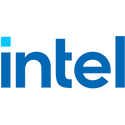Wednesday, February 7th 2024

Windows 11 DirectML Preview Supports Intel Core Ultra NPUs
Chad Pralle, Principle Technical Program Manager at Microsoft's Windows AI NPU division has introduced the DirectML 1.13.1 and ONNX Runtime 1.17 APIs—this appears to be a collaborative effort—Samsung was roped in to some degree, according to Microsoft's announcement and a recent Team Blue blog entry. Pralle and his team are suitably proud of this joint effort that involved open source models: "we are excited to announce developer preview support for NPU acceleration in DirectML, the machine learning platform API for Windows. This developer preview enables support for a subset of models on new Windows 11 devices with Intel Core Ultra processors with Intel AI boost."
Further on in Microsoft's introductory piece, Samsung Electronics is announced as a key launch partner—Hwang-Yoon Shim, VP and Head of New Computing H/W R&D Group stated that: "NPUs are emerging as a critical resource for broadly delivering efficient machine learning experiences to users, and Windows DirectML is one of the most efficient ways for Samsung's developers to make those experiences for Windows." Microsoft notes that NPU support in DirectML is still "a work in progress," but Pralle and his colleagues are eager to receive user feedback from the testing community. It is currently "only compatible with a subset of machine learning models, some models may not run at all or may have high latency or low accuracy." They hope to implement improvements in the near future. The release is limited to modern Team Blue hardware, so NPU-onboard AMD devices are excluded at this point in time, naturally.Michael Langan, Intel's Senior Director of Engineering & General Manager provided comment on the joint project: "We are excited to enable our developer community to harness the power of the industry's first NPU with DirectML support on Intel Core Ultra processors! These exciting AI features and capabilities are only possible thanks for our deep partnership with Microsoft's Windows AI team, and we're looking forward to continuing this partnership and realizing many more exciting AI experiences!"
Sources:
Windows Blog, Intel Community Blog, Tom's Hardware
Further on in Microsoft's introductory piece, Samsung Electronics is announced as a key launch partner—Hwang-Yoon Shim, VP and Head of New Computing H/W R&D Group stated that: "NPUs are emerging as a critical resource for broadly delivering efficient machine learning experiences to users, and Windows DirectML is one of the most efficient ways for Samsung's developers to make those experiences for Windows." Microsoft notes that NPU support in DirectML is still "a work in progress," but Pralle and his colleagues are eager to receive user feedback from the testing community. It is currently "only compatible with a subset of machine learning models, some models may not run at all or may have high latency or low accuracy." They hope to implement improvements in the near future. The release is limited to modern Team Blue hardware, so NPU-onboard AMD devices are excluded at this point in time, naturally.Michael Langan, Intel's Senior Director of Engineering & General Manager provided comment on the joint project: "We are excited to enable our developer community to harness the power of the industry's first NPU with DirectML support on Intel Core Ultra processors! These exciting AI features and capabilities are only possible thanks for our deep partnership with Microsoft's Windows AI team, and we're looking forward to continuing this partnership and realizing many more exciting AI experiences!"



8 Comments on Windows 11 DirectML Preview Supports Intel Core Ultra NPUs
I think that people on tech forums have a certain age already, we are used to the old way of dealing with files, but there's a whole generation out here who are used to A.I assisted file management on phones and tablet. I think Mainstream OS maker are trying to make a convergence on some aspect. Apple had a massive head start on Microsoft on that subject.
The apple chip seems to be in a different situation though, mac users are reporting that DXO/lighroom denoise got slower ever since they had to stop using the neural engine due to a bug. I would like to see a big dive into the performance of every platform's once things start to settle down a bit
Win 11 targeted ads is something that you can opt out. You can still see ads, but they are going to be random. This is the list of the data that's being gathered no matter what you do :
But anyway they will make copilot optional and you will have to accept data collection in order to have copilot. I don't want it, but a lot of users will and they will opt in.
It's not really new, Windows XP and various Windows apps were already able to collect data, but it wasn't mandatory. I personally don't mind sharing that type of data because I've always been just too lazy to manually reports all the bugs that I'm encountering, (unless that bug really breaks important functionality) I would rather have that stuff being sent out automatically. (Yes, I'm part of the problem :shadedshu:)